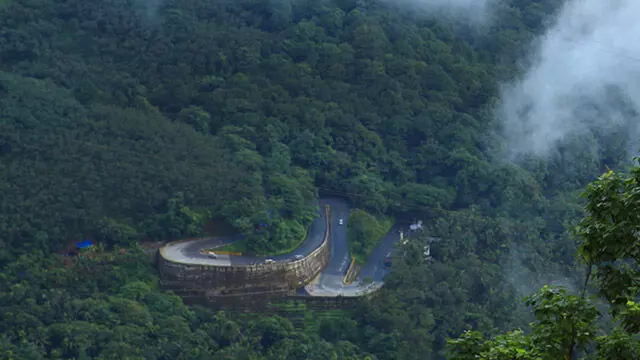Centre may notify eco-sensitive areas of Western Ghats on state-by-state basis
The government might adopt this approach as declaring the entire region an eco-sensitive area
By Newsmeter Network
Western Ghats
New Delhi: The Centre might adopt an incremental approach and notify eco-sensitive areas of the Western Ghats on a state-by-state basis, sources said on Monday.
The government might adopt this approach as declaring the entire region an eco-sensitive area (ESA) at once might not be feasible, the sources said.
The Union Environment Ministry has issued six draft notifications since March 2014 to declare over 56,825.7 square kilometres of the Western Ghats across Gujarat, Maharashtra, Goa, Karnataka, Kerala and Tamil Nadu as eco-sensitive. However, the final notification is still pending due to objections from the states.
Union Environment Minister Bhupender Yadav on Monday said an expert panel, established in April 2022 under former Director General of Forests Sanjay Kumar, is working closely with the states to find a resolution.
After stakeholder discussions, the panel realised that declaring the entire region as an ESA all at once might not be feasible. It will be more effective if done separately for each state gradually, the sources said.
Dense human habitations have developed in some places, leading to law and order situations. Therefore, the Centre will continue consultations with the states and notify areas where consensus has been achieved, they said.
The fresh notification came just a day after a series of landslides claimed over 300 lives in Kerala's Wayanad. Scientists from the state and beyond attributed the disaster to a deadly mix of forest cover loss, mining in the fragile terrain and climate change.
The draft notification proposes to declare 9,993.7 square kilometres in Kerala, including 13 villages in two talukas of the landslide-hit district, ecologically sensitive.
The 13 villages include Periya, Thirunelli, Thondernad, Thrissilery, Kidanganad and Noolpuzha in Mananthavady taluka; and Achooranam, Chundel, Kottappadi, Kunnathidavaka, Pozhuthana, Thariyod and Vellarimala in Vythiri taluka.
The July 30 landslides affected Vythiri's Mundakkai, Chooralmala and Attamala, which have not been included in draft notifications issued over the years.
Overall, the notification proposes to declare 449 square kilometres in Gujarat, 17,340 square kilometres in Maharashtra, 1,461 square kilometres in Goa, 20,668 square kilometres in Karnataka, 6,914 square kilometres in Tamil Nadu and 9,993.7 square kilometres in Kerala as ecologically sensitive.
According to the fresh draft notification issued on July 31, the panel headed by Kumar has held nine meetings since July 2022, "wherein various objections, comments and suggestions were received from the states".
"The committee is addressing the issues raised by the states in the Western Ghats region on discrepancies or information gaps in the draft notification dated July 6, 2022, on the correct names and areas of villages to be included in the ecologically sensitive area. The committee is also examining the suggestions received from the state governments," it read.
The draft notification suggests a complete ban on mining, quarrying and sand mining, with existing mines to be phased out within five years "from the date of issue of the final notification or on the expiry of the existing mining lease, whichever is earlier".
It prohibits new thermal power projects and states that existing projects can continue to operate, but no expansion will be allowed.
All 'Red' category industries (highly polluting), as specified by the pollution control boards, and their expansion shall be banned, it said.
Large-scale construction projects and townships are also proposed to be prohibited, with exceptions for the repair and renovation of existing buildings.
In 2010, the Centre formed the 'Western Ghats Ecology Expert Panel' under ecologist Madhav Gadgil to study the impact of population pressure, climate change and development activities on the Western Ghats, a global biodiversity hotspot which was declared a world heritage site in July 2012 by the United Nations Educational, Scientific and Cultural Organisation (UNESCO).
The panel recommended in 2011 that the entire hill range be declared an ESA and divided into three Ecologically Sensitive Zones -- ESZ 1, 2, and 3 -- based on their eco-sensitivity. It recommended a ban on mining, quarrying, new thermal power plants, hydropower projects and large-scale wind energy projects in ESZ 1.
However, these recommendations faced resistance from state governments, industries and local communities.
In 2013, the Centre formed a High-Level Working Group under rocket scientist K Kasturirangan to study and recommend measures for the Western Ghats' ecological protection and sustainable development.
This group identified 37 per cent of the Western Ghats, covering 59,940 square kilometres, as ecologically sensitive.